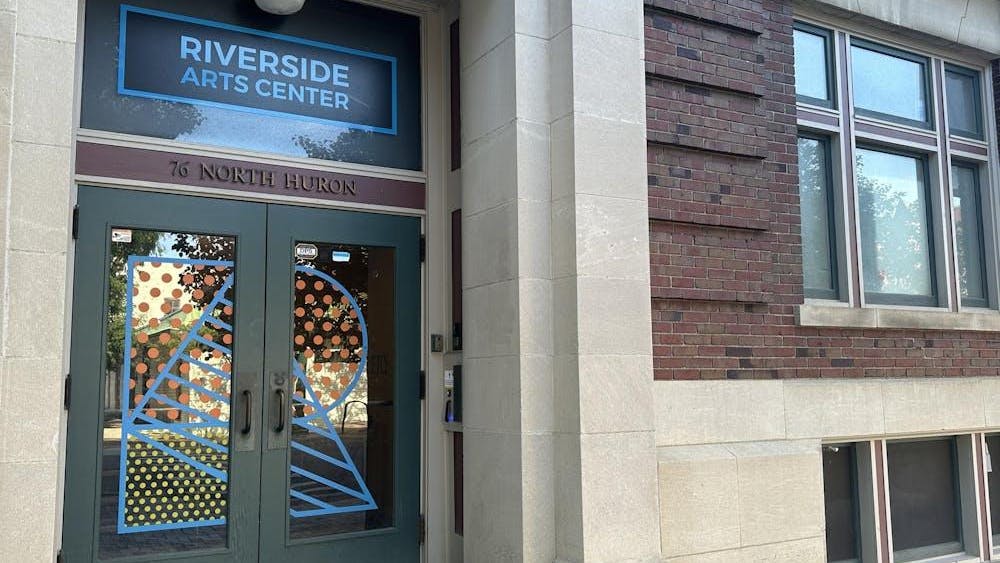“The fear of poetry is the fear,” is the first line in “Reading Time: 1 Minute 26 Seconds” by Muriel Rukeyser. This was one of the poems that the new faculty poetry group read during its first meeting on Tuesday from 12:30 p.m. to 2 p.m.
Elisabeth Daeumer is the founder of this new organization on campus. Daeumer said she was inspired to start this organization for two main reasons. The first is because of Rukeyser, whose 200th birthday (well… if she was still alive) will be in 2013, was quoted saying, “Poems are meeting places.”
Daeumer said, “It’s a genre that allows itself to be talked about. It’s very democratic this way, you can read it together,” as an explanation as to the meaning of Rukeyser’s quote.
Daeumer, an English professor, also sees the poetry group as a perfect reason for herself and other faculty member to get together.
“What was really needed was a chance to be intellectuals together,” she said.
As a faculty member, Daeumer explains how often faculty interact with their students, and watch students interact with each other, but rarely do faculty members from different departments have opportunities to spend time with each other.
The meeting kicks off as different poems are read out loud from a selection. Daeumer encourages that, “Poems communicate before they are understood. You understand a poem really well when you memorize it, because your body will respond to it.”
She talks about the purpose behind poetry, and how it aids humans in understanding their purpose and meaning, or lack there-of. It’s the poet as an existentialist.
“You cannot memorize a story, but you can memorize a poem,” Daeumer said. “It’s an interesting relationship between the verbal artifact and time.”
The interesting thing about poetry, though, is if you have a bunch of people who have master’s degrees (or doctorates) in fields ranging from physics to humanities, the interpretation of a single line of a poem can go in vastly different directions. After reading a particularly intense poem out loud, Daeumer said, “You think it ought to be easy because the words are not complicated, but when you put it all together you don’t understand.”
As proof of this, the different faculty members start dissecting the poem. Michael Reed, who is a professor of philosophy at EMU, shares his interpretation.
“A poem can bring up certain uses of language that take you from the world,” Reed said. “Don’t lose yourself passively in the story.”
Daeumer acknowledged this comment by adding that in a poem, “You become aware of the materiality of words.” In contrast, faculty member Lisa Cooper said, “Poems are good when they’re a density of metaphor, of craft, of just plain beauty.”
Reed starts to question, “Is there something to be understood here?” To which Margrat Best argued, “Poetry is not bound by logic. It’s not bound by logic in the sense of reason. The fear of the part of us that is mysterious.”
With that, Cooper said, “There’s a format given and you have to be creative.”
This leads the conversation to quickly move from the interpretation of the meaning of the poem to analyzing the format used to write it; an understandable transition, especially when considering that these faculty members are consistently forced within their line of work to avoid grading students on thoughts and opinions and instead on format, a problem that Daeumer said “doesn’t aid our ways of assessing student learning.”
As the different faculty go back and forth, discussing the use of alliteration, metaphor and line structure, Daeumer said,
“There are criteria of craft and you can address that… the more time you spend the more you see the craft.”
As the clock ticks, quickly approaching 2:10 p.m., Daeumer closes the discussion.
“Most poems are ultimately emotional drama,” she said.
Everyone starts talking as the concept that there’s no way to truly understand the meaning behind the poem they’ve spent the past 20 minutes discussing sets in. They momentarily discuss how they enjoyed this opportunity to spend time together and agree to meet in December.
For any faculty member interested in poetry, spending time with their peers or just listening to a good debate, you can contact Daeumer at eDaeumer@emich.edu.









